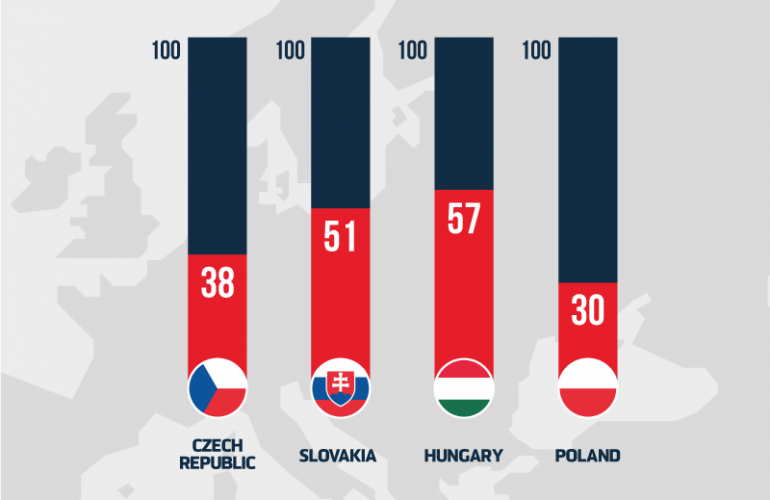How vulnerable are the Visegrad four societies?

The Visegrad group countries in Central Europe (Poland, Hungary, Czech Republic and Slovakia – V4) are often perceived as a regional bloc of nations sharing similar aspirations, aims and challenges. They share a common history, communist past, Soviet occupation and all joined the EU and NATO to embed themselves in western civilization and transform their post-communist societies. However, there are internal forces in each of the Visegrad group countries trying to subvert and undo this journey and change the cultural and geopolitical orientation of each country. Such efforts are aided and strengthened also by foreign actors who use every opportunity to sow discontent, create divisions and provide an alternative narrative for the whole region. Russia as the main regional actor operating outside of the EU-NATO framework is projecting its power in Central Europe region by means of diplomatic activities, energy and economic policy, information warfare and support to domestic political forces (both mainstream and fringe) sympathetic to the Russian narrative, with the overall aim of restoring its influence in the region and weakening the EU and NATO. Following the outcome of the U.S. presidential elections, the issue of Russian influence in Central Europe has become more important than ever.
How vulnerable are the Visegrad four societies to such subversive foreign influence?
Where are the weak spots to be remedied and what are the examples of best practices in addressing these threats?
Read more in our latest publication Vulnerability Index below.